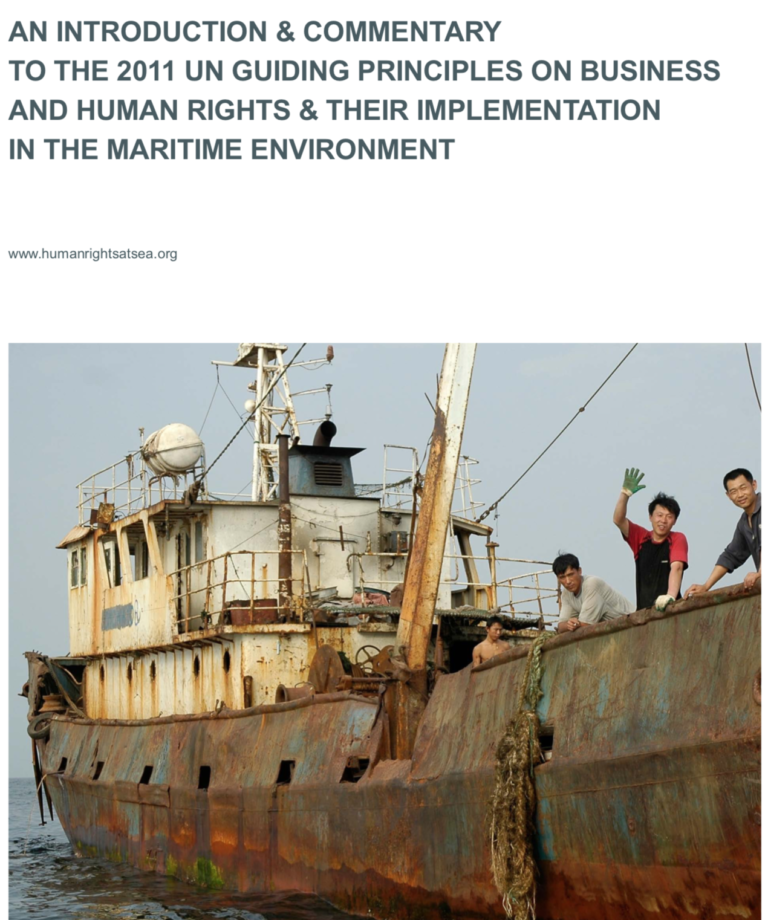The commentary explains how and why the UN Guiding Principles on Business and Human Rights should apply throughout the maritime environment to all business enterprises and in all business operations throughout the maritime supply chain, both on land and at sea. It highlights risks, delivers case studies and identifies pertinent examples, including references to existing business and human rights policies and their application.
The publication also provides background to the increasingly common requirement for consideration and use of Human Rights Impact Assessments in the business sector, as highlighted by the European Commission’s guidelines on the analysis of human rights impacts in impact assessments as part of the Better Regulation agenda adopted by the Commission in May 2015. The publication offers up some key self-help guidance as part of basic management actions that can be taken to address implementation of business and human rights in a business enterprise.

